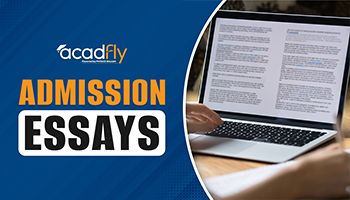

Mastering the TOEFL Writing Section requires a solid understanding of the essay structure and effective writing strategies. By focusing on the TOEFL writing section structure, you can create well-organized and compelling essays that meet the test's requirements. This guide will provide you with essential tips and techniques for structuring your TOEFL essays, helping you improve your writing skills and achieve a higher score.
Effective Structuring of TOEFL Essays
To excel in the TOEFL Writing Section, understanding how to effectively structure your essays is crucial. Proper structuring ensures clarity and coherence, which are key to achieving a higher score. Here are five essential points for structuring TOEFL essays effectively:
1. Follow the TOEFL Essay Format
Adhere to the standard TOEFL essay format, which includes an introduction, body paragraphs, and a conclusion. Each section should be clearly defined and contribute to the overall argument, making your essay easier to follow and more persuasive.
2. Develop a Clear Introduction
Start with a strong introduction that presents your main thesis or argument. A clear introduction sets the tone for your essay and provides a roadmap for your reader, helping to establish the context and purpose of your writing.
3. Organize Body Paragraphs Logically
Structure body paragraphs around individual points that support your thesis. Each paragraph should begin with a topic sentence, followed by evidence or examples, and conclude with a sentence that links back to the main argument. This logical organization enhances the coherence and flow of your essay.
4. Craft a Concise Conclusion
End with a conclusion that summarizes your main points and reinforces your thesis. A well-crafted conclusion ties together the arguments presented in your essay and provides a final perspective on the topic, ensuring your essay has a strong closing statement.
5. Utilize TOEFL Writing Tips During Preparation
Incorporate TOEFL writing tips into your practice to refine your essay structure. Tips such as varying sentence structures, using transitional phrases, and proofreading for clarity can significantly improve the quality of your writing and help you prepare effectively for the test.
Essential TOEFL Writing Tips for Better Essays
Mastering the TOEFL Writing Section involves employing effective strategies to enhance your essay writing. By following these essential TOEFL writing tips, you can improve your essay structure and overall writing quality. Here are key tips to consider:
1. Adhere to the TOEFL Writing Section Structure
Ensure your essay follows the standard TOEFL writing section structure, including a clear introduction, well-organized body paragraphs, and a concise conclusion. This structure helps to present your arguments logically and makes your essay easier to follow.
2. Create a Strong Thesis Statement
Develop a clear and specific thesis statement in your introduction. This statement should outline the main argument or position of your essay, providing a roadmap for your readers and guiding the direction of your body paragraphs.
3. Use Topic Sentences to Organize Paragraphs
Begin each body paragraph with a topic sentence that introduces the main idea of the paragraph. This approach helps to maintain coherence and ensures that each paragraph supports your thesis effectively.
4. Incorporate Transitions for Flow and Clarity
Use transitional phrases and words to connect ideas between sentences and paragraphs. Effective transitions help your essay flow smoothly and make it easier for readers to follow your argument.
5. Revise and Proofread for Accuracy
After drafting your essay, take the time to revise and proofread. Check for grammatical errors, spelling mistakes, and clarity issues. Revising and proofreading are crucial steps in improving the overall quality of your writing and ensuring your essay meets TOEFL standards
Improving TOEFL Writing Through Practice
Consistent and focused practice is key to enhancing your TOEFL writing skills. By incorporating targeted exercises and strategies into your practice routine, you can significantly improve your performance on test day. Here are some effective methods to enhance your TOEFL writing:
1. Practice Writing Essays Under Timed Conditions
Simulate the test environment by practicing writing essays within the allotted time limits. This approach helps you manage your time effectively and get accustomed to the pressure of completing essays under exam conditions, which is crucial for the TOEFL writing section.
2. Review Sample Essays and Analyze Their Structure
Study high-scoring sample essays to understand how they are structured and what makes them effective. Analyze their introductions, body paragraphs, and conclusions to learn how to present arguments clearly and coherently, and apply these insights to your own writing practice.
3. Focus on Developing Clear Thesis Statements
Practice creating clear and specific thesis statements that guide your essays. A strong thesis statement provides a clear direction for your essay and helps you stay focused on your main argument, improving the overall coherence and persuasiveness of your writing.
4. Seek Feedback and Make Revisions
Share your practice essays with peers, instructors, or online platforms for feedback. Use the feedback to identify areas for improvement, such as grammar, coherence, or argument development, and revise your essays accordingly to enhance your writing skills.
5. Utilize TOEFL Writing Prompts for Targeted Practice
Work with a variety of TOEFL writing prompts to build your skills in addressing different types of questions. This targeted practice helps you become familiar with the range of topics and question formats you may encounter on the test, allowing you to prepare more effectively.
Understanding the TOEFL Essay Format
1. Introduction
The introduction should clearly present your thesis statement or main argument. It sets the stage for your essay by outlining the central point you will discuss and provides a roadmap for the reader, helping to establish the direction of your essay.
2. Body Paragraphs
Each body paragraph should focus on a single idea that supports your thesis. Begin with a topic sentence that introduces the main point of the paragraph, followed by evidence or examples, and conclude with a sentence that links back to your thesis. This structure ensures coherence and logical flow.
3. Conclusion
The conclusion should summarize the main points discussed in the body paragraphs and restate your thesis in a new light. It provides a final perspective on the topic and reinforces the arguments made, ensuring that your essay has a strong and conclusive end.
4. Coherence and Transition
Ensure that your essay is coherent by using transitional phrases and linking sentences between paragraphs. Transitions help guide the reader through your argument and maintain the flow of ideas, making your essay easier to follow and more persuasive.
5. Clarity and Precision
Maintain clarity and precision throughout your essay by avoiding overly complex sentences and ambiguous language. Clear and precise writing helps effectively convey your arguments and ensures that your essay meets the TOEFL Writing Section’s expectations.
Frequently Asked Questions
1. How should I start my TOEFL essay?
2. What is the best way to organize body paragraphs in a TOEFL essay?
3. How can I effectively conclude my TOEFL essay?
4. What role do transitions play in a TOEFL essay?
5. How can I ensure clarity and precision in my TOEFL essay?









